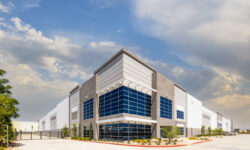Commercial HVAC systems are designed to operate in consistent, extended cycles for optimal efficiency. However, when systems start and stop repeatedly in short intervals, a problem known as HVAC short cycling, the consequences can significantly impact equipment performance and increase energy costs. This issue also compromises indoor comfort across commercial properties while substantially reducing system lifespan.
Read more →Maintaining a commercial HVAC system is critical to keeping tenants comfortable, protecting building assets, and preventing costly breakdowns. But when that maintenance has to happen in an occupied space, the challenge is making sure the work gets done without disrupting day-to-day operations. From scheduling preventive checks to managing noise and dust, the key is planning ahead and using best practices that respect the needs of occupants. You also need to consider how the work could impact employees. Here’s a look at how to approach HVAC maintenance in occupied spaces.
Read more →In recent years, climate extremes have become a constant concern in building management. Record-breaking summer heatwaves and unpredictable winter fluctuations have placed a major burden on commercial HVAC systems. Traditional heating and cooling setups are struggling to keep pace. Here’s what facility managers and property owners need to know, including how to adapt effectively.
Read more →Mixed-use commercial properties are a growing trend in Maryland, DC, and Virginia. Each zone has unique heating, cooling, and ventilation needs, making HVAC management complex. Mixed-use spaces must adapt to the needs of each occupant. For instance, retail areas need steady airflow to keep shoppers cool and comfortable. Offices need quiet systems that promote focus and productivity. Apartments demand comfort and unit-level control. Addressing the heating and cooling requirements of each tenant can be incredibly difficult. Fortunately, you can overcome these challenges by adopting established HVAC best practices designed to address the unique needs of mixed-use commercial properties. Here’s what you need to know.
Read more →Pressure imbalances in HVAC systems are a common yet often overlooked issue in commercial buildings across Maryland, DC, and Virginia. These inconsistencies disrupt airflow, affect comfort, and drive up your heating and cooling costs. The first step to addressing pressure imbalances involves identifying what they are and how they impact your commercial space. This blog identifies common signs to watch for and outlines how you can resolve imbalances.
Read more →Government and municipal buildings in Maryland, Virginia, and DC face stringent HVAC requirements due to their public use and regulatory oversight. For instance, Virginia has detailed regulations regarding minimum temperature requirements in occupied workspaces. If you are responsible for maintaining government or municipal buildings, keeping the HVAC system in functional condition is essential. The Severn Group’s expertise in HVAC design, installation, maintenance, and repair makes us a trusted partner for municipal buildings and government facilities. Here’s what you need to know about heating and cooling system requirements in your space.
Read more →When preparing for commercial buildouts, HVAC planning sometimes takes a back seat until it becomes a problem. Whether you’re a contractor overseeing a retrofit or a building owner reconfiguring interior space, your success hinges on one critical factor — HVAC adaptability. Unlike new construction, commercial buildouts in existing structures demand custom HVAC strategies that work with (not against) what’s already in place. The right approach can help your team get more work done and ensure everyone is comfortable all year long. At The Severn Group, we’ve seen what happens when HVAC is an afterthought. This guide can make sure it doesn’t happen to you.
Read more →Large commercial buildings often experience hot and cold spots, negative pressure areas, and other abnormalities that make certain areas uncomfortable. Installing a high-quality HVAC system and scheduling regular maintenance services can help mitigate these issues. However, commercial systems also require load balancing. Load balancing is a crucial but often overlooked factor in maintaining indoor comfort. It can address temperature inconsistencies in your commercial building and reduce energy consumption. Ensuring balanced airflow and pressure will also extend the life of your HVAC system. Here’s everything you need to know.
Read more →On average, businesses incur about $2.14 per square foot in utility expenses. While keeping the lights on represents a portion of that cost, a huge chunk of your company’s energy consumption can be attributed to heating and cooling. If your business operates in one of the many older buildings in the Virginia, Maryland, and Washington, D.C. area, there’s a good chance that you’ll pay even more to heat and cool your building. A property’s heating, ventilation, and air conditioning (HVAC) system needs a ton of power to maintain a comfortable indoor temperature. If you are looking at ways to reduce your monthly utility bills, adopting some HVAC energy-saving tips is the natural place to start. Here are seven energy-saving tips to jumpstart your efforts.
Read more →As a commercial property owner, it’s vital that you understand HVAC efficiency ratings. After all, heating and cooling your commercial space represents one of your largest operating expenses. Familiarizing yourself with these metrics is especially important if you are shopping for a new heating and cooling system or preparing to retrofit your existing HVAC equipment. With that in mind, here’s everything you need to know about HVAC efficiency ratings.
Read more →









